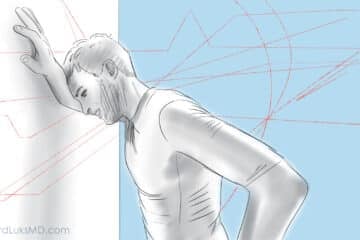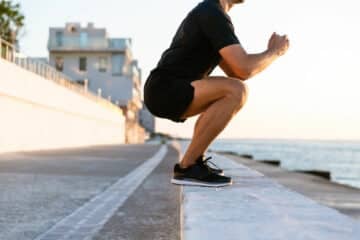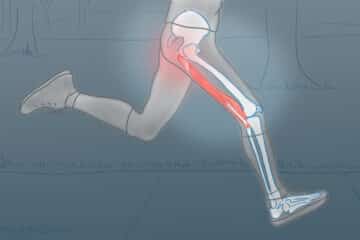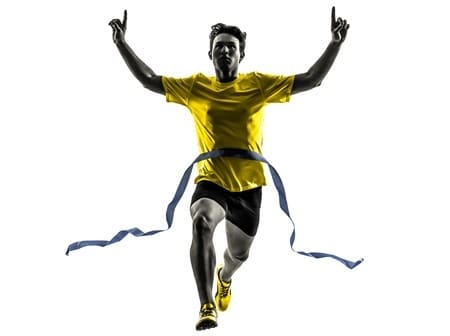
Running has gained in popularity over the last few decades. Many new runners are hitting the trails and unfortunately, many new runners are finding themselves in an Orthopedic Surgeons office. Running properly is not an inborn skill. Training is critical to a runner staying on course throughout the season and training enables the runner to hit their reasonable expectations or goals.
Runners who forgo training or technique modifications will likely find themselves in my office and sidelined for what might feel like an eternity.
If you are a new runner, or someone fairly new to the sport… these four tips should keep you happy and productive on the trails.
1. What Shoes Should I Wear To Run In

Thankfully a fair amount of research has been performed in this area. When selecting the proper running shoe the only variable that matters is that the shoe feels comfortable to you. Yes .. it can be that simple. When buying a shoe, run in it… and be sure that the shoe doesn’t feel awkward or unnatural. That’s the shoe for you. In addition, many of us recommend two or three pairs of shoes, from different manufacturers. These running shoes should be alternated because each shoe, no matter how comfortable is stressing your foot in a slightly different manner. By switching up the shoes you diminish the risk of developing a stress related injury from running in the same shoe day in and day out.
The only variation or time to consider a completely different type of running shoe will vary by the terrain you run on. Trail runners need a shoe with more support along the sides of the foot to minimize the risk of rolling the foot too much because of the terrain on the trails.
2. Pace vs intensity:
Runners who are just starting their running careers and even seasoned runners frequently find themselves in a rut. They tend run each time at a moderate pace. That is a pace that is in zone 3 or 4. That means you are rising out of the aerobic fat burning stage and you are not able to carry on a conversation without having to take a deep breath during the conversation.
Too many runners pay attention to the pace on their watch or phone and pay too little attention to the intensity at which they are running. In a previous post we discussed the critical importance of heart rate training or base building to improve your running efficiency. You want most of your runs to find your heart rate in Zone 2. For most of us that is below 130-140 bpm. It is a conversational pace. You should be able to speak to your running parter without feeling out of breath.
Runners should forgo trying to hit a certain pace for most of their runs. 80% of your miles should be zone 2 runs. This is at an “easy’ intensity. You should not feel like you’re pushing it, or winded. Your average training run should be at an “intensity” that feels “easy”.
Of course… if you are training for a 5k or for 13.1 and beyond you will also work on other training runs such as progression runs, fartleks, hill repeats, etc. But again … follow the 80/20 rule: 80% of your runs should be at an easy intensity and 20% should be harder. Your heart will grow stronger and your legs will stay healthier and happier.
3. Setting Reasonable Running Goals:
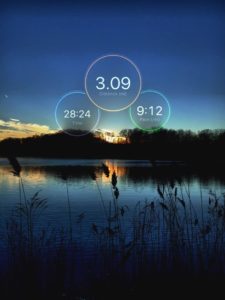
It takes 8-12 weeks or more to train for the mileage and your desired (and realistic) pace for a 5K, 10K and 13.1. It takes much longer than that for a 26.2 run if you are starting from scratch.
You must start with a period of “base building” , that means many runs with your heart rate in Zone 2. You need to put in the longer slow miles runs every week… but you need to build those miles slowly. The 10% rule mostly applies in this scenario too. The 10% rule states that you shouldn’t increase your mileage more than 10% per week. Now for those starting out and you are running one mile… you can stretch it to 20% until you get to 3 miles or more, then you revert back to the 10% rule. IF you exceed the limits of the 10% rule then you are taking a very significant risk of developing a host of stress related injuries which will sideline you for sometime.
Take your time — build your base — plan your first 5K 2-3 months out – follow the 80/20 rule and the 10% rule and you should come across that finish line without any regrets — or significant pain.
4. Don’t Ignore Cross Training, Core Training and Your Butt.
A strong butt is key to a longer, healthier and happier time running
Our bodies become very efficient at a certain exercise pattern. If you want to improve your leg, core and gluteal strength you will need to train them. To improve your cardiovascular system even further you will need to cross train.
Do you have questions regarding an Orthopedic injury or longevity?
Do you want to talk to an expert who can listen to you for 45-60 minutes and explain the options in detail?
Dr. Howard Luks offers remote guidance sessions to review your X-ray or MRI images and explain your options.
Dr. Luks has also received hundreds of requests for educational sessions on the topics discussed in his book, Longevity Simplified.
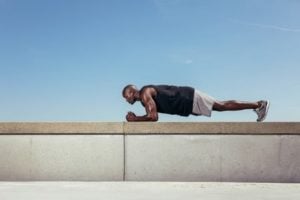
Running is the best medicine … as long as you are cleared to do it by your doctor and you don’t have any pre-exisiting injury that might preclude you from remaining on the trails for years to come.
Heed the advice of those who have been injured before you… and those of us who have treated the injured before you.
A few simple rules and tips to follow —and I’ll hopefully see you on the trail … and not in my office :-)


